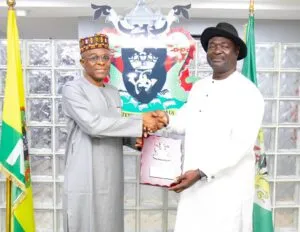Millions of tonnes of substandard and adulterated petrol has entered filling stations; especially in Lagos, even as industry operators point accusing fingers at officials of Department of Petroleum Resources (DPR) for looking the other ways as these products come inn from different parts of the world.
A visit by our correspondent round most of the filling stations in Lagos revealed that there are different types of petrol on sale. They are differentiated by their colours and by their smell.
Industry sources also confirmed the questionable quality of the petrol on sale at the dispensing stations all over the country. This was also confirmed by our correspondents in Abuja and Port Harcourt, Rivers state.
At the peak of the recent nationwide scarcity of petrol, different types of the product were on sale, but this has persisted even though, it was attributed to the acute scarcity at that time.
Top on the list of complaints at that time was the foul smell, the unusual colours and the rate at which the petrol burns; whether in a vehicle, power generating sets or in any device.
Industry sources alleged in a chat with Shipping Position Weekly that the low quality products have actually been slipping into the markets under the nose of officials of DPR which has responsibility of ascertaining the quality of these products before they are pumped into the depots and eventually get to the filling stations.
Industry sources alleged in a chat with Shipping Position Weekly that the low quality products have actually been slipping into the markets under the nose of officials of DPR which has responsibility of ascertaining the quality of these products before they are pumped into the depots and eventually get to the filling stations.
Experts told our correspondent some of the reasons why the petrol burn faster as well as the foul smell. According to them, they are due to the reduction in the chemicals used by some of these refineries.
Giving an insight into how this can happen, the experts explained that after petrol is separated from the crude oil in the process of refining, it is mixed with chemical called iodine which also brings out the colour and also makes the product ready for the markets.
The iodine, according to experts is for protecting the life span of vehicle engines and other equipment that are using the petrol. They however confirmed that the quality and quality of the chemical are sometime reduced in order to save cost. “Some of the countries from where Nigeria imports petroleum products now use machine technology to short circuit the refining process so as to get more quantity of the products”. “This of course is at the detriment of the final consumers”, our correspondent was told.
Shipping Position Weekly also told that Bonny Light crude which is the best crude with highest quality and which is the type that Nigeria is exports is said to have the best post-refinery petrol. “The problem is that Nigerian importers go around the world to import substandard products.
Commenting on the development, a petroleum product market, Mr. Olanife Adeoye lamented that “until we are able to refine our crude oil here in Nigeria by ourselves, we can not have a unified colour, smell or quality, it is only when we do these things here that the DPR will be able to monitor fully”.
Another stakeholder who spoke under anonymity alleged that some officials of DPR are involved in the deal, even as he pointed out that “in every system, there are some people that will try and circumvent it, so you can’t expect to have a hundred percent perfect operation, some of them compromise”.
















Discussion about this post